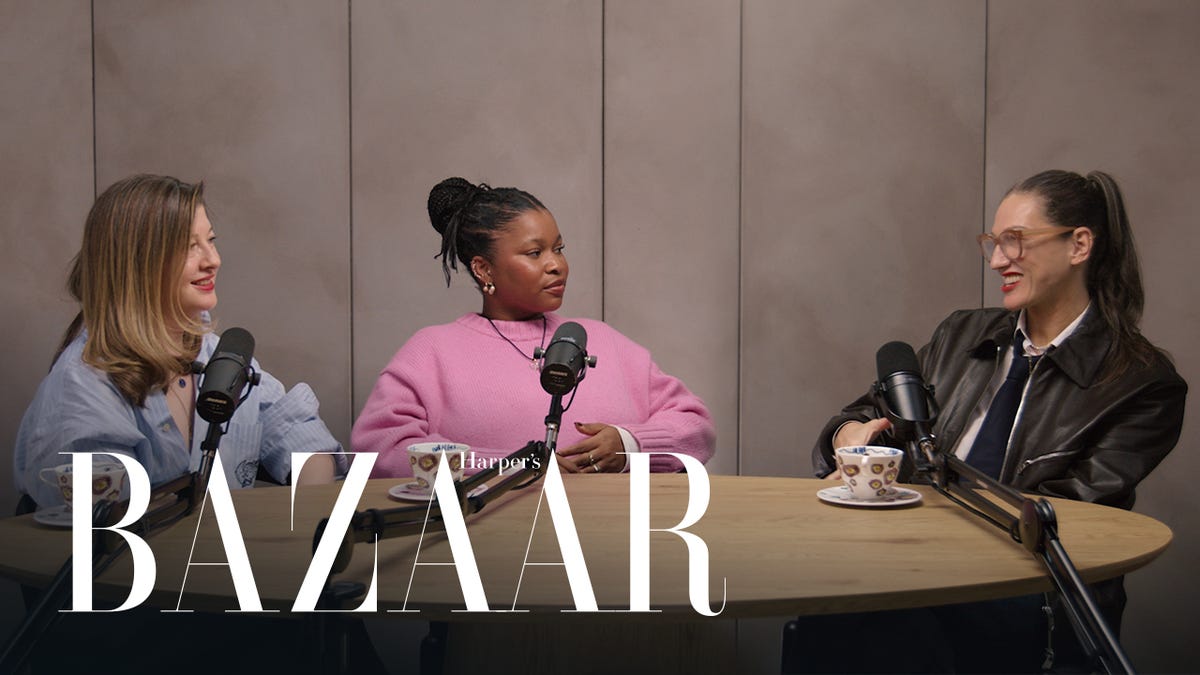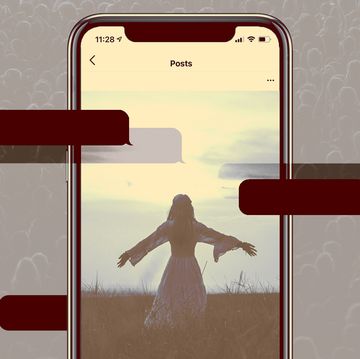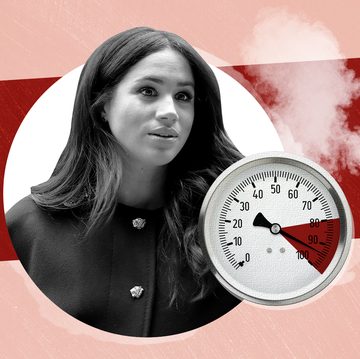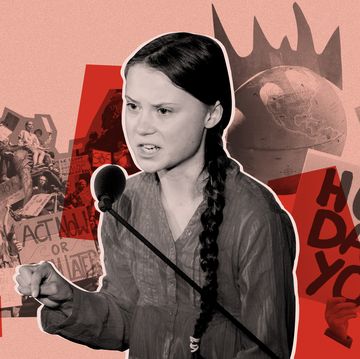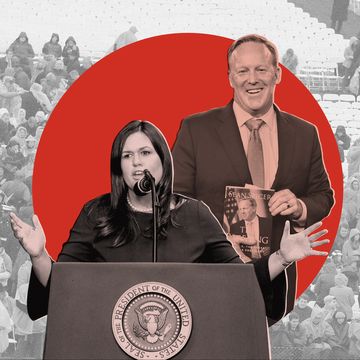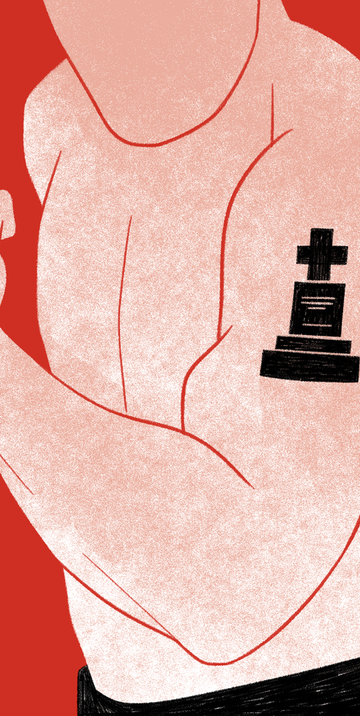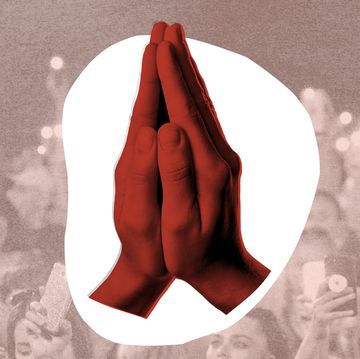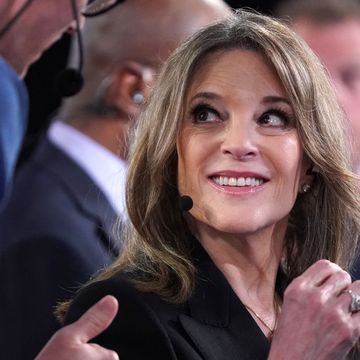We’re not in a post-feminist world, despite what some people would like you to believe. As we look back at 10 years of online harassment and unchecked rage from men who believe they're the “real” victims in modern society, it's clear the playing field still has plenty of pitfalls for women.
To grow up in the '90s and early 2000s was to be bombarded with the message that “women can do anything.” To be alive in the 2010 was to realize that, as far as men were concerned, “anything” did not include making video games, running for President, being a climate change activist, writing comic books, or, for that matter, speaking on the internet at all.
Not because women could not do those things. On a technical level, they could. The feminism of the '70s and '80s stripped away a lot of the institutional barriers that had thwarted women of the past. Flight attendants these days do not, mercifully, have to retire at 32 and report to weigh ins to insure they don’t weigh more than 140 pounds. Since the Pregnancy Discrimination Act was passed in 1978, companies can’t legally fire anyone for being pregnant. Sexual harassment is, at least technically, illegal.
And so, spurred on by the Spice Girls and Legally Blonde and Buffy the Vampire Slayer and years of other positive depictions of “girl power,” many younger women expected to be able to go out and take on the world relatively unhindered. They attended and graduated from college at a higher rate than their male peers. As of 2011, more working women than men had college degrees. They were young, and bright, and reasonably optimistic.
But what that rhetoric did not prepare women for was that, in response to displays of female strength, many men would reveal themselves to be as fragile as eggshells. Plenty of men had no interest whatsoever in seeing women in any sphere but that of helpmeet. With institutional barriers removed, the only recourse left to these men was to harass women back into a sphere of silent, compliant domesticity.
And oh, they would. So many women from so many groups would be harassed in the 2010 decade that, despite repeated admonitions from harassers that they had good reasons for disliking that particular woman, it became hard not to notice a pattern.
Perhaps a woman logging onto Twitter in 2010 would, if she was observant and had a certain Cassandra-like quality, have been able to predict everything that was to come.
Men were angry. And, because, by 2010, 76 percent of adults were on the internet and by 2011, 50 percent used social networking sites, they could use the internet to form groups. That ability was fantastic if you were looking to wish high school acquaintances happy birthday, or find people who enjoyed the same obscure band you did, or wanted to swap vegetarian recipes. It was less fantastic insofar as it provided forums for misogynists to share violent images and opinions with minimal oversight. In 2012, an Icelandic woman named Thorlaug Agustdottir found a Facebook group called “Men are better than women.” It featured pictures of brutally beaten women. When she reported it, Facebook found it didn’t violate their standards, and labeled it “controversial humor.” Users from the group started telling Thorlaug “you just need to be raped,” photoshopping her face to appear beaten. (The post was eventually removed by Facebook.)
This was, women would find, how things went when they complained.
In 2014, Amanda Hess wrote about how, when she was on vacation, a man started a Twitter accounted dedicated to harassing her with messages like “Happy to say we live in the same state. Im looking you up, and when I find you, im going to rape you and remove your head.” Hess was a sex and dating writer, but this happened to women in every sphere. As Hess noted, similar comments were directed to Alyssa Royse, a sex and relationships blogger, for saying that she hated The Dark Knight: “you are clearly retarded, i hope someone shoots then rapes you.” To Kathy Sierra, a technology writer, for blogging about software, coding, and design: “i hope someone slits your throat and cums down your gob.”
On a personal level, I have received many messages like those. At first, I would call my mom and sob when I got them. Then, they built up and they all melded together into an inseparable rat king of threats. And if that rat king was forever sitting in my living room as a constant presence, I ceased to really pay attention to it. If I thought about it at all, I didn’t think of it as something that could be stopped. I figured it was normal.
Which is an incredibly inappropriate reaction. When people are telling you they’re going to kill or rape you, it’s not normal to just accept that as part of your day. Catherine Mayer, the founder of Britain's The Women's Equality Party, received a message on Twitter in 2013 saying, “A bomb has been placed outside your home. It will go off at exactly 10:47 on a timer and trigger and destroy everything.” When she wrote about it, the article was titled, almost apologetically, “I received a bomb threat on twitter. Was I right to report it?”
Six years after the fact I’d like to say: YES CATHERINE, YOU WERE RIGHT TO REPORT IT, BECAUSE IT WAS A BOMB THREAT.
But her hesitation was understandable. Because if you voiced concern that the constant graphic descriptions of how you’d be raped were, perhaps, inconvenient, you’d be told to be quiet and “not feed the trolls.”
Somewhere along the way society decided it was permissible for men to become apoplectic because a woman said she disliked The Dark Knight. But if a woman expressed any discontent about murder threats directed towards her, she was being unreasonable. As Lindy West, the author of The Witches Are Coming, wrote in a piece about leaving Twitter back in 2018, “Those of us who complained about online abuse were consistently told—by colleagues, armchair experts and random internet strangers—that we were the problem. We were too soft. We, who literally inured ourselves to rape threats and death threats so that we could participate in public life, were called weak by people who felt persecuted by the existence of female Ghostbusters.”
The only way not to be attacked was not to talk at all. Or at least, never to express opinions that might differentiate you from a doormat. So a number of women stopped. A 2016 study by Alice Marwick, a fellow at the Data & Society Research Institute, found “young women… are less likely to make online contributions at all because they’re worried about being attacked for it.”
But logging off was detrimental to women in certain industries, like journalism, and as social media became more vital, it almost certainly was a coordinated effort to target and terrorize women in a specific industry. You can look to Gamergate, the gruesome 2014 online movement that began when game developer Zoe Quinn’s ex-boyfriend wrote a 9,425 word blog post claiming, among other things, that she’d slept with gaming journalists in exchange for positive coverage of the games she’d developed (like Depression Quest). Those accusations were proven to be false. The journalist she supposedly slept with for a good review of Depression Quest never even reviewed the game. Nevertheless, the largely male community on 4Chan and Reddit widely shared the post, and discussed ways to destroy Quinn’s life. Their chat logs talk about her as “a festering cheese-filled vagina” that leaves “a trail of cunt slime,” and her harassers discuss ways they could push her into dying by suicide.
One exchange between her harassers regarding the bile towards Quinn went:
Aug 21 18.26.37 <Cyberserker> You need a reason …
Aug 21 18.28.14 <Opfag> Well I don’t have a legitimate reason.
Aug 21 18.28.21 <Cyberserker> Nothing?
Aug 21 18.28.21 <Opfag> I just want to see her die horribly.
They could come up with as many justifications as they wanted, but all those were excuses. They just didn’t like that she was a woman existing in their world.
Quinn was doxxed, a term that refers to when a person’s personal details—home address, phone numbers, pictures and bank details—are shared online against their will. Quinn left her home, fearing for her safety. That was reasonable, in light of the fact that people were saying things like:
“Next time she shows up at a conference we … give her a crippling injury that’s never going to fully heal … a good solid injury to the knees. I’d say a brain damage, but we don’t want to make it so she ends up too retarded to fear us.”
The only thing Zoe Quinn did was create a game about navigating depression.
At roughly the same time, Anita Sarkeesian, who made YouTube videos about depictions of women in video games, became the brunt of attacks from Gamergaters. Sarkeesian had to flee her home after her address was leaked online by a man who claimed he was going “rape her to death and ram a tire iron up her cunt.” He also tweeted her parents' address, claiming he was going to kill them, too.
There is basically no situation where threatening to rape a woman, murder her, and murder her parents is acceptable. It’s especially vile because all Anita did was make a video about how there is sexism within the video game community.
Brianna Wu, another game developer, made fun of Gamergate on Twitter. Her jokes were fairly tame—along the lines of saying Gamergaters “were fighting an apocalyptic future where women were 8 percent of programmers, not 3 percent.” She too was doxxed and forced to flee her house after someone tweeted her address and claimed:
“I know where you live. You and your husband live at … I’m going to rape you until you bleed then choke you to death … if you have any kids, they’re going to die too. I don’t give a fuck. They’ll grow up to be feminists anyway.”
Similar incidents of harassment were directed towards actress Felicia Day and writer Jen Frank, who were either told they brought the harassment upon themselves or were making it up.
While Gamergate was applauded by a lot of men in the anti-feminist man-o-sphere like Roosh V, Milo Yiannopolus, and Mike Cernovich, the movement wasn’t comprised solely of men. Women like Christina Sommers and Cathy Young forcefully defended it.
Now, as a woman, why would you want to align yourself with a group of people who feel entitled to run women out of their homes for making videos about feminism? Well, I can only speculate, but I imagine if people are doing terrifying things, attempting to align yourself with them is one way to protect yourself from their ire. If you are “one of the good ones” perhaps these men won’t hurt you. Of course, if you do that, you have chosen to rely upon the gratitude of very bad men. That has always struck me as a rather risky strategy.
Still, when other women are being attacked in the most horrific ways, I imagine it is pleasant to pretend that you are not like the other girls. But step out of line, and see how quickly those people will treat you exactly the way they do other girls.
Despite Christina Sommers and other pro-Gamergate accusations, It’s important to note that Anita Sarkeesian, Zoe Quinn, Felicia Day, Brianna Wu, and the other survivors of Gamergate weren’t hurting anyone. They were just women trying to do their jobs and comment on the world they saw around them. And that was enough to send a great many men into a state of unchecked rage.
When Gamergate first happened you might have felt relief, as a woman, that you did not work in that industry. But the misogynistic harassment tactics evident in Gamergate didn’t take long to spread. In 2017, we had Comicsgate, which opposed diversity and progressivism in superhero comic books. When Marvel editor Heather Antos posted a picture of herself and six other female Marvel employees getting milkshakes, captioned “It's the Marvel milkshake crew! #FabulousFlo,” her tweet brought all the trolls to the yard.
A harassment campaign against Heather and other women working in the comics industry commenced, led by those who were against diversity in comics, and who felt, among other things, that the tough-guy comic character Luke Cage pushing a baby carriage was some kind of liberal conspiracy.
Andrew Farago, curator of the Cartoon Art Museum in San Francisco, told The Daily Beast, “[Comicsgate] is made up of people who were into the Gamergate thing and when that ran out of steam they noticed that they hadn’t made comics miserable for enough people yet.”
All of this because a woman had a nice day with some friends and shared a picture. In the midst of the harassment campaign, Antos tweeted, rather sadly, “Woke up today to a slew of more garbage tweets and DMs. For being a woman. In comics. Who posted a selfie of her friends getting milkshakes.”
Then there was the 2016 version of Ghostbusters, where the franchise cast four women—rather than four men—as Ghostbusters. Now, obviously, that presents some problems, for instance, how would the blowjob ghost of the original movie give blowjobs to women? Answer: the blowjob ghost is bisexual.
That glaring problem solved, film starring Kristen Wiig, Melissa Mccarthy, Kate Mckinnon, and Leslie Jones offers a pretty harmless premise, with a long term agenda that was probably little more than producing some fun halloween costumes for young girls. This did not stop men from deciding that there was a vast conspiracy to “ruin their childhoods.”
While all the stars of the film received harassment in the form of messages like "Ain't no bitches gonna bust no ghosts,” Jones became the brunt of the abuse. It is not a coincidence that Jones is black, and the rest of the cast is white. If you are wondering if harassment is worse for women of color—yes. Basically everything bad about existing as a woman is worse for women of color.
As journalist Imani Gandy told Amnesty International, “I get harassment as a woman and I get the extra harassment because of race and being a black woman. They will call white women a ‘c*nt’ and they’ll call me a ‘n*gger c*nt’. Whatever identity they can pick they will pick it and use it against you. Whatever slur they can come up with for a marginalized group—they use.”
Led by troll Milo Yiannopolous, who repeatedly referred to Jones as a “black dude,” the star was deluged with hateful messages on Twitter. She noted, “I have been called Ape, even got a pic with semen on my face…all this ‘cause I did a movie.”
Like so many other women, her personal information was also hacked and leaked.
Remarkably, after this, Twitter did attempt to crack down on abuse on the platform, and banned Milo. Milo’s fans rallied around his cause with the hashtag #FreeMilo, seemingly because they felt a man’s right to harass a woman was sacrosanct. In a better world, this might have been, as Yiannopolous’s editor described a chapter in his canceled book, “a stupid ending to a horrible chapter.” Unfortunately, it was not. Shortly after, Yiannopolous went on to be invited to speak at the Republican National Convention. By then, this appetite for harassing women—and appealing to the men who enjoy harassing women—had bled into politics.
Donald Trump was very quick to affirm the notion that men were the real victims in modern society. (Though given that we live in a world where more men named John run S.&P. 1500 firms than women, it does not appear that men are being held back too much.) There’s even a video of Trump during his campaign decrying the female version of Ghostbusters and wondering “what’s going on!?” The answer is: “They cast some women in a children’s fantasy movie about catching ghosts and busting them.” But alas, reason is not the point with these guys.
Former head of the alt-right website Breitbart and Trump advisor, Steve Bannon, noted, “You can activate that army. They come in through Gamergate or whatever and then get turned onto politics and Trump.” Misogynists didn't just randomly latch onto Trump. Trump's campaign saw what they were doing and, rather than being repulsed, he chose to target them. He realized that “mocking women” would be a selling point among that crowd.
The fact that we came to accept male harassment during this decade made it acceptable for a Presidential candidate to gloat about harassing women and “grabbing them by the pussy,”as Trump did. Trump went especially hard on sexist attacks with his female opponents, claiming that no one would vote for one-time candidate Carly Fiorina, saying, “Can you imagine that, the face of our next next president? I mean, she's a woman, and I'm not supposed to say bad things, but really, folks, come on. Are we serious?” He routinely shouted over Hillary Clinton, when not tweeting things like, “If Hillary Clinton can't satisfy her husband what makes her think she can satisfy America?”, in reference to Bill Clinton’s affair.
Many of Trump’s followers didn’t just tolerate this behavior. They saw it as a selling point. As Trump ran against Hillary Clinton, shirts with messages like “Trump that Bitch” or “Life’s a bitch, don’t vote for one” proved popular sellers.
If some women in the room were offended by those messages, well, in the years past, women had seen what happened when they spoke up about being offended. It is not doubt easier to go along with hateful men than to risk their ire being turned upon you. That would at least explain why the wife standing aside her husband and three kids did not gently suggest her husband not wear a “she’s a cunt, vote for Trump” T-shirt.
And now we are here. With a President who routinely harasses a 16-year-old activist on Twitter because she’s attempting to mitigate the damage posed by climate change. And here we are, the rest of us. Women, still attempting to work in a world where the pitfalls are more numerous than we were led to believe and where you can be attacked for virtually anything.
Some of the women in this article have survived, and even thrived despite the harassment campaigns against them. Greta Thunberg is Time Magazine’s Person of the Year. Brianna Wu is running for Congress. Zoe Quinn wrote a memoir which was optioned by Sony.
They were stronger than they should ever have had to be. But then, there are the rest of us, who watched these women get harassed over the decade and thought “I really don’t want that to happen to me.” How many of us just learned to be afraid, or to be silent?
In an Amnesty International poll from 2017, 76 percent of women said they changed the way they used social media after being harassed. Thirty-two percent of women said they’d stopped posting content that expressed their opinion on certain issues.
Because of this, some very important voices are lost. The UN High commissioner for Human Rights, Zeid Ra’ad Al Hussein, noted, “Online campaigns against women human rights defenders and organizations aim to damage their credibility as advocates, to diminish or obliterate the power of their voices, and to restrict the already limited public space in which women's activists can mobilize and make a difference.”
But you can’t blame women. We knew that if we stepped out of line—and stepping out of line could mean doing anything publicly, aside from posting pictures where we look pretty, or pictures of things we baked—that we could be next.
Women running for politics now are trained by organizations like VoteRunLead on how to handle and respond to harassment. They anticipate training 30,000 women by 2020. That’s certainly vital, but it doesn’t make going into politics seem especially appealing.
Some women simply choose to opt-out of the workforce in general. If you’re at home with your own kids, there are going to be less men threatening to kill you.
Eliminating institutional barriers and yet continuing to allow harassment is akin to welcoming a woman into an office filled with scorpions. And when she complains, a male colleague tells her that his office is perfectly fine, and hers is the same size and has the same equipment, so perhaps she’s just either oversensitive and ought to quit.
And women do, in droves. This article isn’t specifically about sexual harassment (although I’ve written about how it affects women in the workplace in the past ), but 41 percent of women who are sexually harassed quit their jobs.
Men claim that there is no gender pay gap because women choose lower paying job. No-one wakes up in the morning and says, “I really want a job that pays me poorly.” Most people would cheerfully accept huge amounts of money for their work, and women today choose traditionally male-dominated majors like political science, criminal justice and reform, business administration and management, and more in approximately equal rates to men in college. But, while no one enters the work force thinking “I can’t wait to earn less,” it’s very reasonable to choose not to work in higher paying industries when it becomes clear that those are industries where you’ll be vulnerable to doxxing and rape threats. It’s also reasonable accept a lower paying job at a company where you’ll be harassed less.
To carry on with the metaphor: If someone says, “we’ll cut your salary in half, but our offices/industry has only five or six scorpions, tops,” that can seem like a very good deal.
We’re not in a post-feminist world, despite what some people would like you to believe, because the playing field still has pitfalls for women that it doesn’t have for men.
The onus doesn’t need to be on women to fix that. Women are already doing enough just by enduring it, and continuing to speak out. Given how difficult it is to do that, consider how easy it would be, by comparison, for men to take a deep breath, and step away from the computer or microphone the next time they feel like railing against bitches.
Oh well. Maybe next decade.

